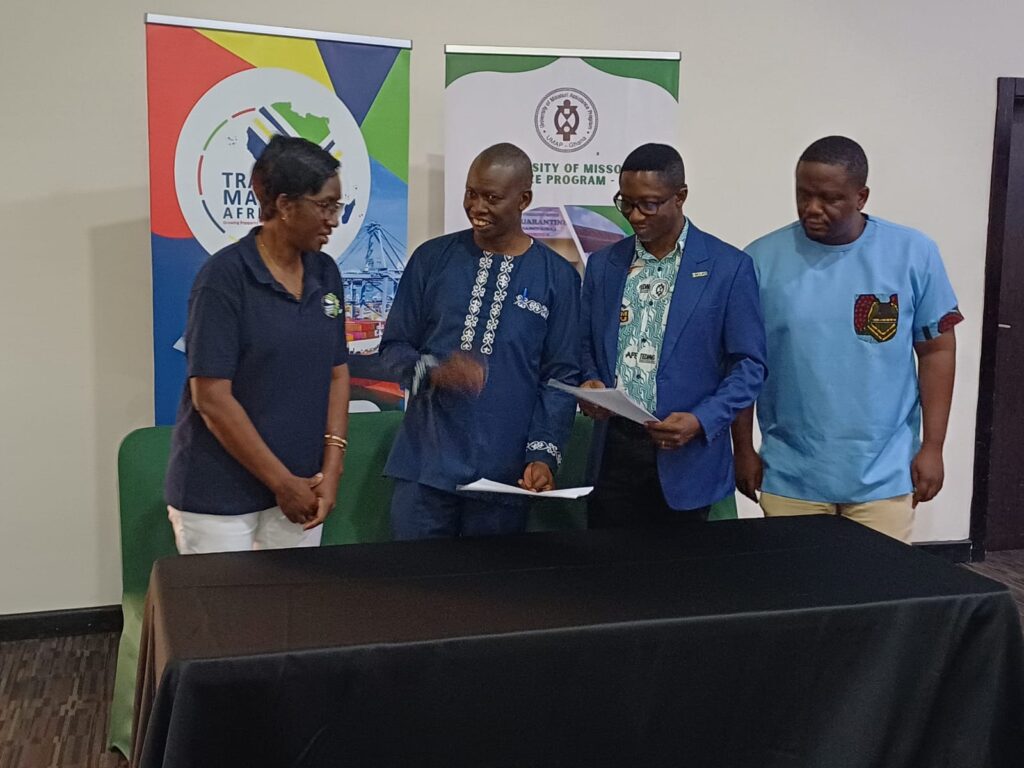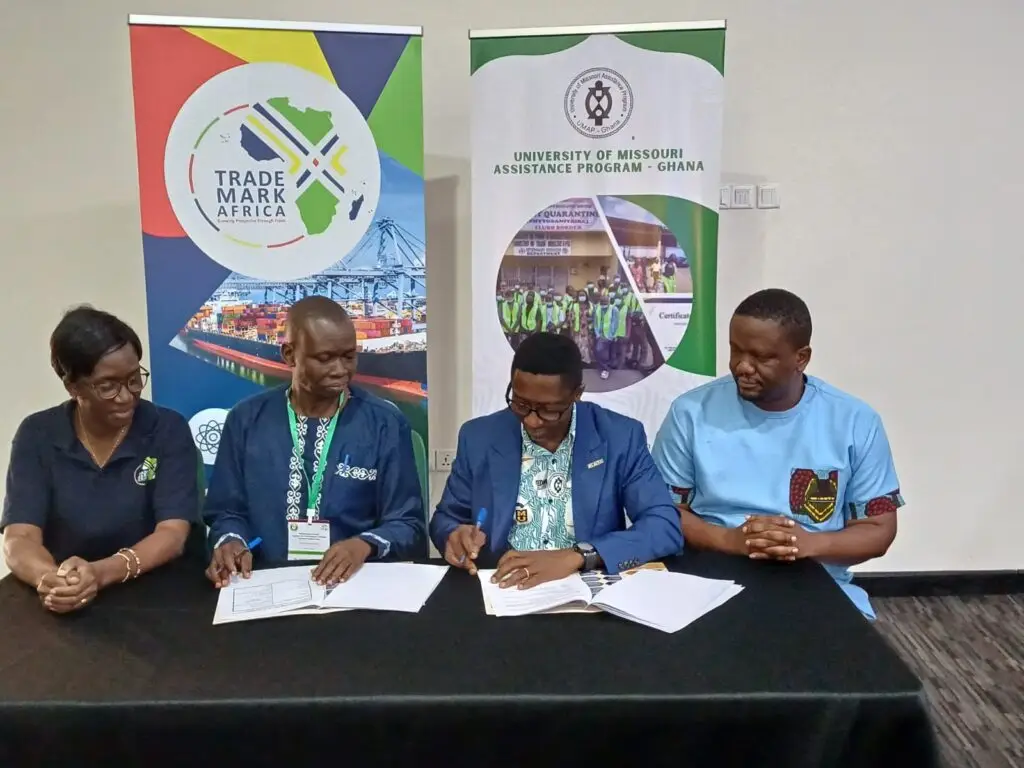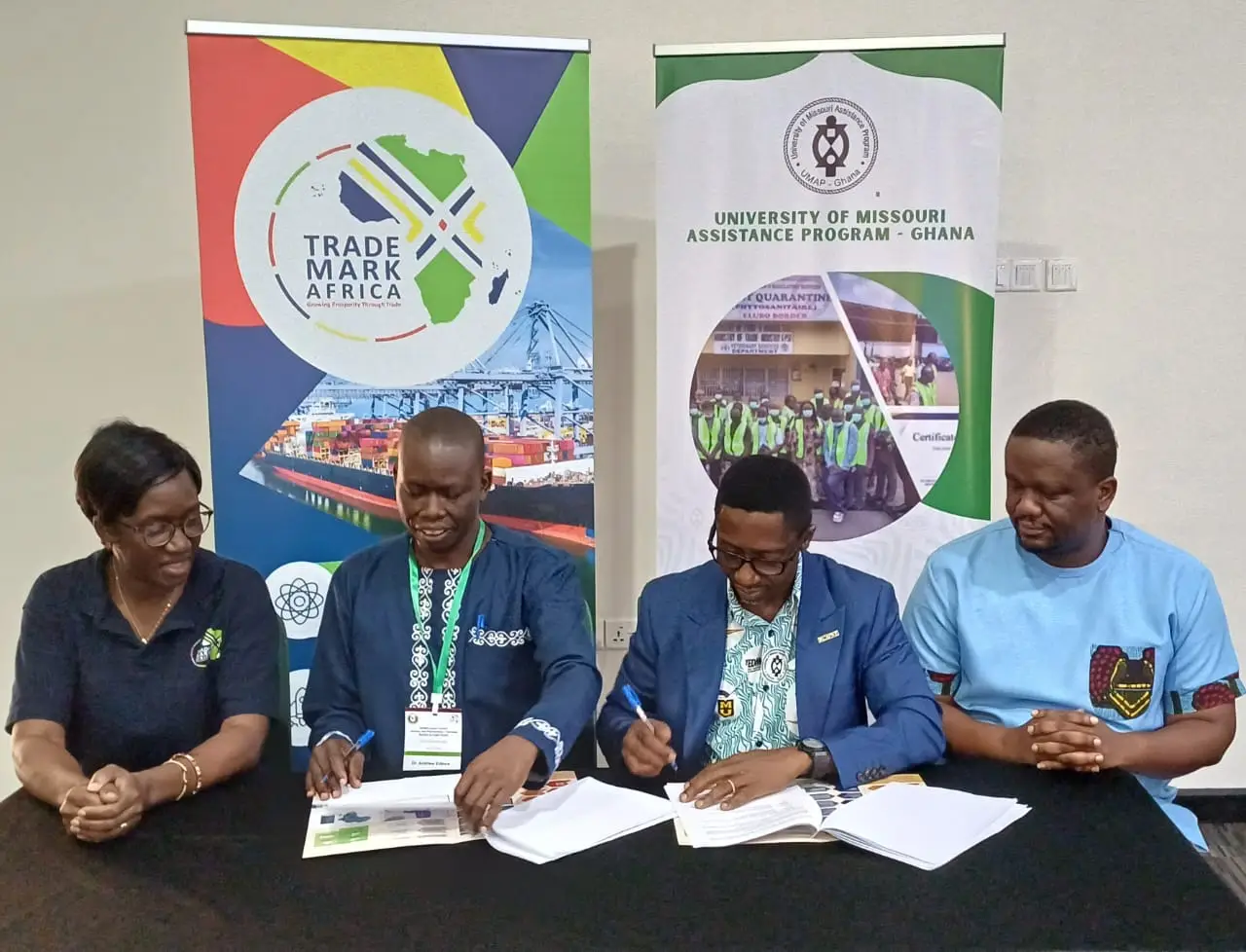Accra, Ghana. 21 November 2025 – TradeMark Africa (TMA) and the University of Missouri Assistance Program-Ghana (UMAP-Ghana) today formalised a partnership to transform Sanitary and Phytosanitary systems and strengthen quality infrastructure. The MoU will also support harmonisation of standards across ECOWAS Member States.
The Memorandum of Understanding (MoU) establishes a framework for deep technical collaboration to improve food safety, enhance inspection and certification systems, and support the development of modern, risk-based SPS procedures that enable safer, more competitive, and more predictable trade. With SPS-related barriers among the leading causes of border delays and export rejections in West Africa, the agreement marks a significant step in accelerating implementation of the AfCFTA and ECOWAS trade facilitation ambitions.

“Reliable SPS systems are at the heart of agriculture-led industrialisation and safe regional commerce,” said Mawuli A. K. Asigbee, Director of UMAP-Ghana. “Through this partnership, we are drawing on the technical expertise of UMAP-Ghana, the University of Missouri and combining it with TMA’s strong regional footprint to build evidence-driven, harmonised SPS systems that work for regulators, farmers, processors, and exporters alike. The MoU helps establish a pathway for long-term institutional strengthening across the ECOWAS region.”
The MoU prioritises cooperation on harmonised SPS procedures, joint training and capacity building for regulators and national laboratories, corridor-based pilots along the Abidjan-Lagos Corridor, and support to ECOWAS to advance implementation of continental and international SPS frameworks. The collaboration will also focus on research, policy analysis, and facilitating mutual recognition arrangements to enable smoother cross-border trade flows.
“This partnership builds confidence in the safety and quality of goods traded across West Africa.” said Dr. Andrew Edewa, Director, Standards and SPS at TMA.

The agreement will further reinforce the implementation of the WTO SPS Agreement and support the region’s aspirations for integrated value chains, safer food systems, and competitive agricultural exports. Ultimately, the collaboration aims to strengthen trust in West Africa’s agrifood products, reduce border delays, and support scalable models that can be replicated across the continent.


